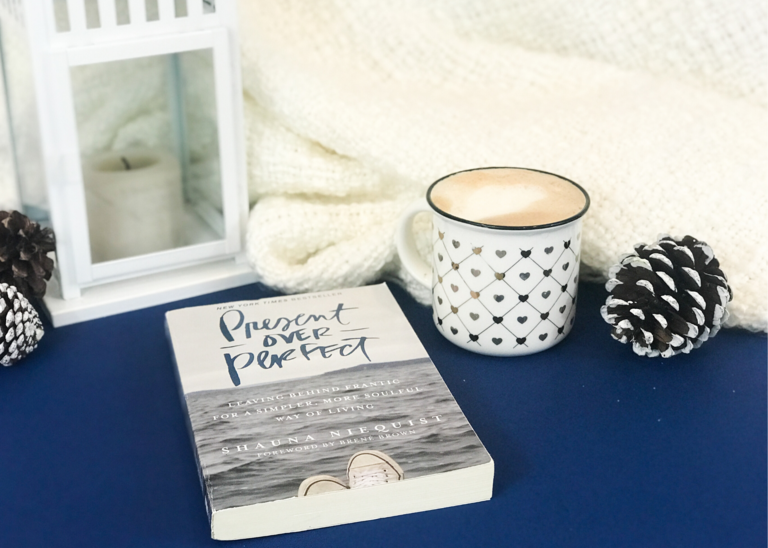How to Stop Being a Perfectionist
Disclosure: This post may contain affiliate links, which means we may receive a commission if you click a link and purchase something that we have recommended.
Perfectionism can be a debilitating problem. Learn what causes perfectionism, why it’s a problem, and how to stop being a perfectionist.
“What’s your greatest weakness?” the interviewer asked me.
“I’m a perfectionist.”
She looked skeptical. “How is that a weakness?”
“If you were one, you’d know.”
(She didn’t ask, but if she had, I’d have told her that speaking bluntly is my second greatest weakness; I’m a classic INTJ.)
To those who don’t struggle with it, perfectionism is hard to understand. They see perfectionists as people who set impossibly high standards or who are simply choosing to “be difficult” when we say something isn’t good enough. Others might even think that we’re fishing for compliments when we decry our own work.
But perfectionism isn’t any of those things.
Perfectionism causes us to strive for unattainable goals, putting unbearable amounts of pressure on ourselves and putting a dangerous level of stock in other people’s opinions of us. It’s a gripping state of mind, one that tells us we are never good enough, that what we do needs to be much, much better. It makes us feel inferior and creates in us a fear of failure so strong that we become paralyzed—unable to take any action at all for fear of getting it wrong. At its worst, it tells us that our imperfection renders us unlovable.
What is the difference between perfectionism and having high standards?
I often describe myself as having high standards, a trait considered a strength, even though I know deep down I struggle with perfectionism. Somehow, describing it as ‘high standards’ makes it feel less debilitating.
But how big is the difference really? Will cultivating a mindset of high standards really help me to stop being a perfectionist?
Actually, it could.
According to Psychology Today, there is a tangible difference between perfectionism and high standards. Perfectionism is driven by a fear of failure, high standards are driven by the joy of a job well done. A perfectionist does not take pleasure in the work she’s produced, but rather focuses on the mistakes she made or the shortcomings of her efforts. A woman with high standards works her hardest and then stands back and says, “Well done.”
And then she moves on.
A perfectionist is not satisfied with the work of others either. If her name is going to be associated with it, it needs to be perfect. She would rather do the work of five people than be associated with something less than perfect. A person with high standards helps others to rise up to her standards and works together with them to improve the final product, but ultimately recognizes that sometimes “really good” is good enough.
Not so the perfectionist.
Why is it important to stop being a perfectionist?
I once took on the major task of leading my church’s second-largest fundraising event of the year—a humongous garage sale. For some reason, I felt that coordinating the logistics of the event, including more than fifty volunteers and hundreds of hours of prep time, wasn’t enough. I really wanted to give it my best.
So I decided that I would bake ten apple pies for the bake sale. The night before the event.
Don’t ask me what I was thinking. I must have been seriously sleep-deprived. I was, after all, five months pregnant with my third daughter at the time. Chalk it up to pregnancy brain.
So, I enlisted the help of my best friend and her family. Our two families gathered together at her house and set up an assembly line to get these pies done. We cored, sliced, boiled sugar sauce, rolled dough, wove tops, pre-baked, and packaged. It took hours and it was exhausting.
But this was a pivotal moment for me because it was the day I realized how much of a perfectionist I really was. My best friend is an amazing woman. She takes on more than most people I know and does it all really well. Not perfectly, but really well. And she’s okay with that. She does not expect perfection from herself. She is wise enough to know that it’s not going to happen and that even if it did, it would come at a cost she is not willing to pay.
She would rather get lots done and make a significant impact in the lives of those around her than waste time trying to do everything perfectly.
As we assembled those pies, that stark difference in our personalities became clear. I wanted to pinch the edges of every crust, measure the strips of dough for the topping to make them exactly even, ensure that each pie had exactly the same number of apples in it.

She just wanted to get it done. She knew that the people buying and eating those pies at the bake sale really wouldn’t care about such things. They just wanted to support our fundraising effort and get something yummy at the same time. She was setting her standards appropriately.
As hour five came and went, I could sense that she was starting to get frustrated with me and my “high standards.” We were all exhausted and needed to be done, and I needed to learn to let go and accept that they were good enough.
This is the challenge with perfectionism and why it is important to stop being a perfectionist.
Think about it:
Being a perfectionist is not fun
It’s very hard to enjoy yourself when you’re completely stressed about making things perfect. It’s also hard for other people to enjoy being with you.
There is no such thing as perfect
No matter how hard you strive for perfection, you will never get there. There will always be something that could have been better. But there is such thing as amazing. As exceptional. As really well done. And you can achieve these things when you stop being a perfectionist. Honestly, the majority of people won’t be able to tell the difference.
Being a perfectionist paralyzes you and causes inaction
I was awakened to this when I realized that one of my daughters is a perfectionist. She is incredibly gifted and talented at many things, but she focuses only on the negative things she sees in her work. She doesn’t want to use her God-given talents because she believes she can never be good enough at anything. And those of us who see what she does do are both amazed and saddened. We see these beautiful works of art, but we also see her pain.
It’s the same in the business world. Those who wait for perfection don’t get very far. Everyone who is okay starting with “really good” move past those who wait for perfection. Those with high standards tweak on the go, constantly improving, but never stopping. Perfectionists stand paralyzed, believing that nothing they do will ever be enough, and unable to bear the thought that others will see how imperfect they really are.
How to stop being a perfectionist
1. Be honest with yourself
Some deep personal reflection is required if you are going to stop being a perfectionist. Get out your journal and pen, brew a pot of tea, and set aside a good chunk of time where you can be alone and reflect quietly. (This won’t be a one-time process, of course. Repeat as necessary).
Dig into the roots of your perfectionism.
- Have you always felt the need to be perfect?
- What are your earliest memories of trying to be perfect?
- What do you think drove it?
- Were there people who told you that you weren’t good enough or that you wouldn’t make it? (These things come out of people’s mouths more often than we care to admit, unfortunately).
- Was there a time when you didn’t live up to someone’s expectations of you and were made to feel less worthy or ashamed?
All of these things contribute to our need to be perfect. If we inherently believe that our worth as a human being and our worthiness of being loved depends on how perfectly we live our lives, we will naturally strive to meet that impossible standard. It’s so important to understand what is making you a perfectionist if you’re going to attempt to let go of your perfectionism.
2. Know where your worth really comes from
We cannot earn our worth. There is nothing we could ever do, no standard we could ever live up to that would give us a deep sense of worth or make us feel that we are worthy of the unconditional love we are created to need.
Fortunately, we don’t have to. Our worth has already been set.
When we were utterly helpless, Christ came at just the right time and died for us sinners. Now, most people would not be willing to die for an upright person, though someone might perhaps be willing to die for a person who is especially good. But God showed his great love for us by sending Christ to die for us while we were still sinners. (Romans 5:6-8, NLT).
Our worth was defined when Christ, the only perfect human being ever to live, died on the cross to save us. Nothing we do can ever change that. No imperfection or weakness or flaw will ever change the fact that God loves us enough to send Jesus to die for us.
3. Recognize that God wants you to stop being a perfectionist
Even though there may be a few people in your life who expect perfection from you (although there are probably fewer than you think), it’s important to recognize that God doesn’t. He loves you just the way you are, with everything that you’re currently able to bring to the table.
He knows your strengths and weaknesses and has a plan for you that already accounts for them.
Each time he said, “My grace is all you need. My power works best in weakness.” So now I am glad to boast about my weaknesses, so that the power of Christ can work through me. (2 Cor. 12:9, NLT).
We are not asked to work alone. We are asked for obedience. When we practice stillness and silence and listening prayer, we hear what God is asking us to do. (Again, it may be less than you think). Our job is to step out in obedience, not to step out in perfection. If God was looking for perfection, He probably wouldn’t look to us! Instead, His power is made perfect in our weakness.
He just asks us to come to the table, and He promises us that He will be there to “pick up the slack” that our imperfection leaves in its wake. Isn’t that a reassuring thought?
Being a perfectionist is not easy, and overcoming perfectionism is just as challenging. Even as you begin to work through some of these issues and embrace your weaknesses, there will be moments where you find yourself caught up in your perfectionist ways again. Don’t be afraid to ask for help. Pray that God will help release you from the grip of perfectionism. Find accountability partners, such as your husband, children, or a close friend, who will gently let you know when you’re trying too hard. Start taking notice of the situations that most inspire perfectionism in you, and dig into the fears that arise in those situations.
The more you learn to let go of your perfectionism, the more you will truly enjoy your works.
Please leave a comment below and let us know how perfectionism affects your life and what you’re doing to overcome perfectionism. The other perfectionists in your midst will naturally want to collect as much information and anecdotes on this topic as possible!
Resources
Here are some additional resources that may help you if you are struggling to overcome perfectionism.
- Present Over Perfect, by Shauna Niequist is a raw examination of one woman’s battle with perfectionism and how she learned to recover her life.
- This TED talk from Charly Haversat, professional athlete and recovering perfectionist, discusses how Perfectionism Holds Us Back.
- Five Ways to Overcome Fear of Failure and Perfectionism, Psychology Today
Related Products
Here are some products that may help you (or your children) deal with perfectionism.




You may also enjoy my post 7 Bible Verses for Perfectionists.












Thank you for your wonderful words. Agree with this one, there’s no such thing as perfect in this imperfect world. Your advices and tips on how to stop being a perfectionist will surely be a big help.
Thanks so much, Nichole. Really appreciate your encouragement:)
Thank you very, this is highly informative….I feel soo good and my life patterns have been summarized in these bible verses.
Thank you, God bless!